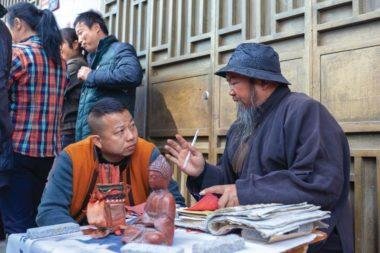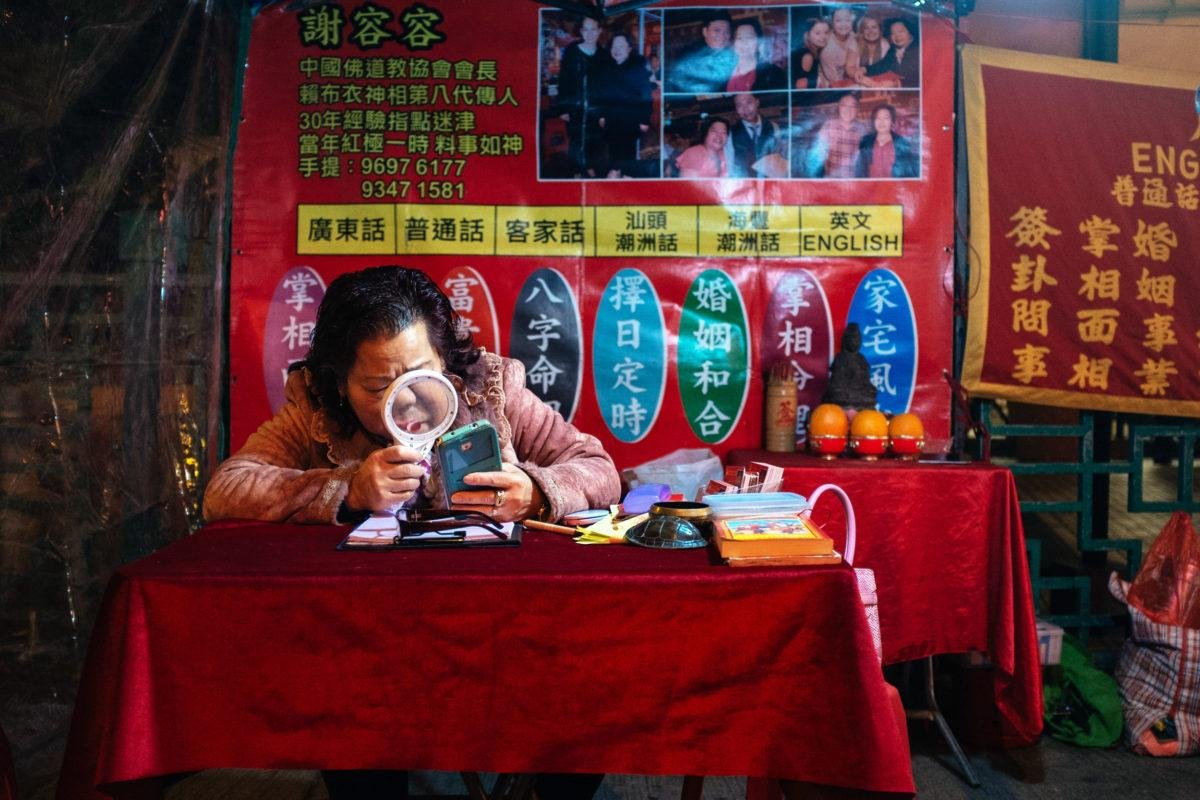Seeking Fortune: Chinese Fortune Tellers
Chinese Fortune Tellers bring back the long-suppressed practice of divination, but with modern twists.
“Lüdagunr!” cries the old woman selling “donkey rolls,” a snack made of glutinous rice with bean paste, in front of a courtyard home on central Beijing’s Chengxian Street. “Want some lüdagunr?”
 Get closer, though, and she might lower her voice to mutter: “Want your fortune told? Try inside.” This is because Chengxian Street is also known as “Fortune Telling Street,” in reference to an ancient though enduring profession that’s tolerated—along with other “feudal” beliefs, such as feng shui—yet still occupies a legal gray zone in China even after thousands of years of practice.
Get closer, though, and she might lower her voice to mutter: “Want your fortune told? Try inside.” This is because Chengxian Street is also known as “Fortune Telling Street,” in reference to an ancient though enduring profession that’s tolerated—along with other “feudal” beliefs, such as feng shui—yet still occupies a legal gray zone in China even after thousands of years of practice.
Today, fortune-telling—also known as divination or “fate calculation” (suanming, 算命)—is arguably more prevalent than it’s ever been, and more diverse. Millennials are turning to swanky tarot-reading parlors and apps that claim to offer “AI fortune-telling”; government officials have been routinely chastised for their predictive predilections; and these trends have inevitably attracted the attention of scammers… read more >



101st Screaming Eagles 1918 Vintage Men’s T-Shirt
Solberg Turkey Farms 1943 Vintage Men’s T-Shirt
Devil’s Hot Rod 1995 Vintage Men’s T-Shirt